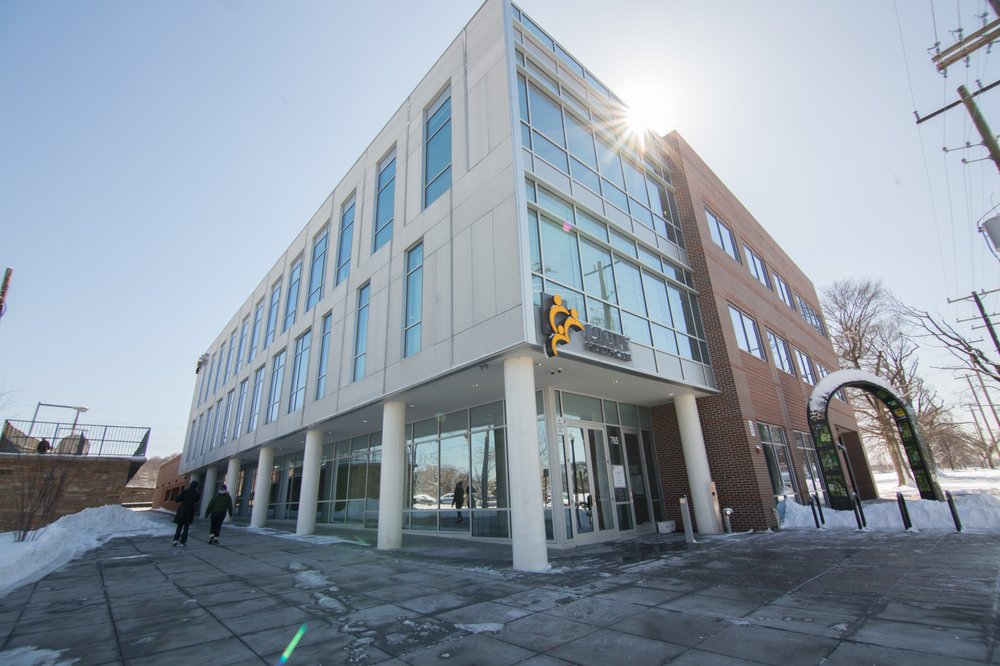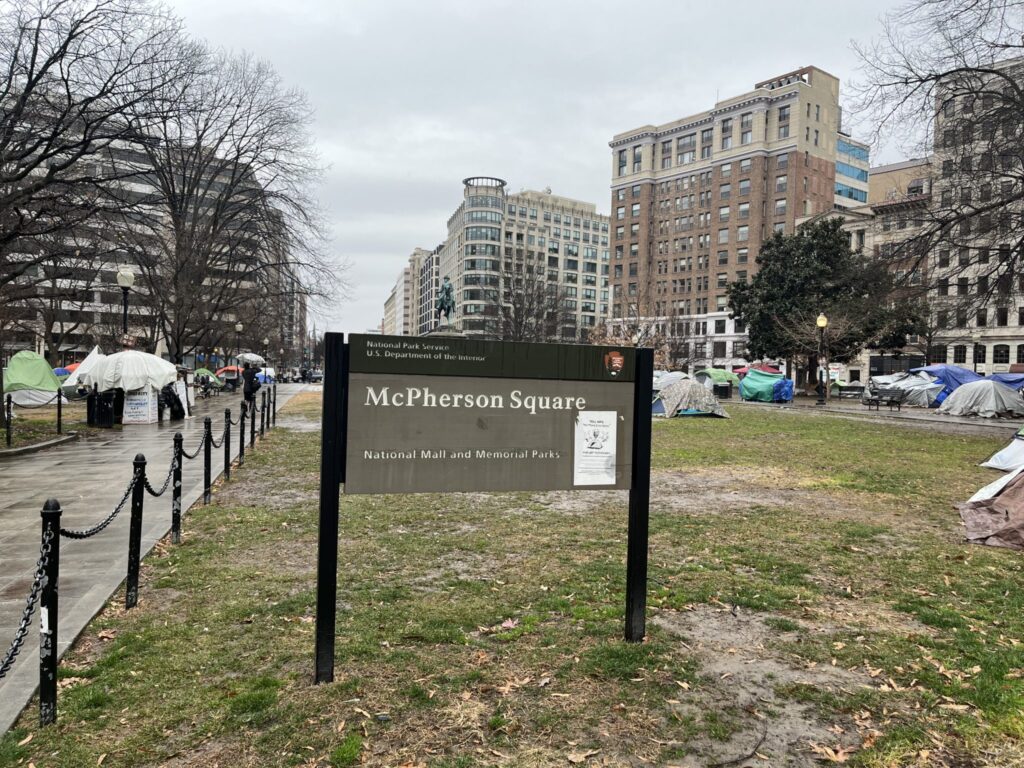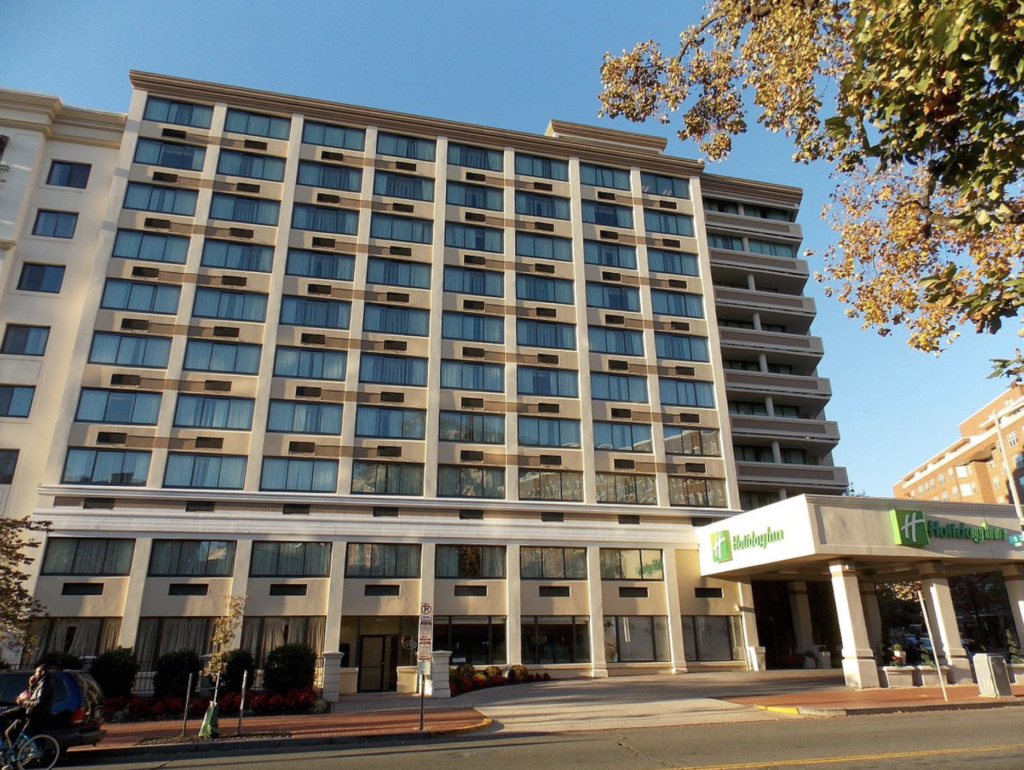This article was featured in the April 1 digital-only edition of Street Sense. Until it is safe to resume person-to-person sales, you’ll always be able to find the current digital-only edition at streetsensemedia.org/Digital. Thank you for reading! Please continue to support our vendors through our mobile app (streetsensemedia.org/App).
D
ay-to-day operations look different now in many of the District’s health care providers that serve low-income and homeless residents. Whitman-Walker Health, Community of Hope, Unity Health Care, and La Clínica del Pueblo are re-orienting care to virtual platforms and instituting protocols for personal protective equipment to keep both patients and providers safe.
Providers encourage patients to call phone numbers listed on their websites instead of coming directly into a clinic to allow staff to address as many’ needs as possible over the phone, COVID-19-related and otherwise. Many patients are being scheduled for telemedicine visits. This mode of care utilizes either video or phone communication to provide medical attention without a patient needing to leave their home, limiting the risk of contracting COVID-19 or transmitting it to others.
Community of Hope’s clinics are continuing “sick visits” for both people with symptoms of COVID-19 (fever, cough, or shortness of breath) and those with other symptoms. All non-urgent visits have been cancelled and will be rescheduled. Dental visits will only be provided in cases of emergencies. All counseling appointments are being conducted via Zoom, Facetime, or telephone. Community of Hope is accepting new patients who are sick and without a primary care provider, as well as new clients for emotional wellness services.
Through May 29, Whitman-Walker’s NW Health Center and Max Robinson Center will not be accepting walk-in visits and are scheduling in-person visits only for patients experiencing respiratory symptoms, according to Chief Medical Officer, Sarah Henn. “We have a nurse triage line that’s open 24/7. Any patients with respiratory symptoms who we think are appropriate would be scheduled in the respiratory clinic. Other patients with acute symptoms or problems that need to be addressed are being scheduled for telehealth visits and being managed via telehealth at this time,” Henn said.
La Clínica del Pueblo has been limiting services on-site by canceling check-ups, and doing as much symptom assessment and management as possible over the phone. Patients experiencing COVID-19 symptoms and acute issues continue to be seen for in-person visits. The clinic’s goal above all is to continue to be there for the Latino community it primarily serves, even as their default mode of connection has changed, according to Rachel Ugarte, La Clínica’s chief development officer. “We’ve shifted a good deal of our programs to be operating remotely and virtually so the majority of our staff are now working from home and using Zoom and telephone to connect with patients.”
Unity Health Care is encouraging patients to continue to seek out their services and is still accepting walk-in visits except at their Southwest and Stanton Road Health Centers. However, the organization recommends calling first to determine the best course of action. Dr. Ryan Buchholz, medical director for quality improvement at Unity, said they are reaching out to patients with chronic health conditions like diabetes or heart disease and offering telemedicine services. It’s a big change, he said. “A few weeks ago we only had a few providers providing telemedicine services and now it’s closer to 80 providers getting up and running with telemedicine services, trying to be able to keep patients safe and home or at their place of residence where possible.”
He explained that Unity has a call-in nurse triage service. “We have nurses at our scheduling center who are … responding to calls so they can assess the patient’s symptoms. Oftentimes we are encouraging patients with very mild symptoms, because actually a majority of patients who have COVID-19 have mild symptoms, actually to stay home where they are,” Buchholz said.
If the triage nurses determine someone has more severe symptoms, that person is referred to the emergency department. Those experiencing moderate symptoms would be directed to come into one of Unity’s clinics for an in-person evaluation. Upper Cardozo Health Center, Minnesota Avenue Health Center, or Parkside Health Center have been designated as COVID evaluation sites and the patients exhibiting moderate symptoms are being primarily directed to these locations.
Shifting so much of the diagnosis-work to phone or video conversations is just one of the many changes to clinic operations that Unity and other providers have implemented in response to the pandemic.
At Unity, only one person is allowed to accompany a patient at their appointment and everyone is asked a series of screening questions upon entering a clinic location. “We’re screening everyone who comes in, patients as well as visitors, for symptoms like fever, cough, difficulty breathing, as well as if they have a known contact with someone with COVID-19 or if they’ve traveled to a place where there’s a lot of patients with COVID-19, whether in another country or elsewhere within the U.S.,” Buchholz said. Anyone screening positive for one of these criteria is given a mask. These same questions were included in guidance the D.C. Department of Human Services distributed to its partner providers, like Unity, on March 13.
At Whitman-Walker, patients are ushered into a private room where medical history is obtained over the phone with the patient sitting by themselves. Only then will a staff member wearing full personal protective equipment enter the room in order to do an evaluation or obtain a nasal or oral swab for testing. “It’s a much safer process, I think, for our patients and for the providers,” Henn said.
Part of the rationale for seeing patients in this manner is preserving personal protective equipment. With a majority of staff getting medical histories and managing medications over the phone, a limited number of staff walking with patients to exam rooms wearing a surgical mask and gloves, and only one provider each day suiting up in full protective equipment to take respiratory samples from patients, the clinics are able to manage their supplies.
“I think no one can order as much protective equipment as they would like to order at this time,” Henn said. “But that being said, we have taken inventory of our protective equipment and, by really being thoughtful about how patients are seen, we have enough to safely see and evaluate patients right now.”

Whitman-Walker and Unity Health Care are among 12 D.C. sites seeking donations on #GetUsPPE, a website that aims to serve as a national, centralized platform to supply personal protective equipment to healthcare providers on the frontlines of the pandemic.
Ugarte said La Clínica is similarly experiencing a shortage of personal protective equipment. So is Community of Hope, according to Leah Garrett, the organization’s vice president of development and communications. “We are pursuing every lead possible to bring hand sanitizer refills, gowns, gloves, and surgical or N95 masks into the organization. We are carefully monitoring our inventory, which is locked for security purposes, and we are prioritizing equipment for our sick patients and our healthcare professionals,” she wrote in an email.
A nurse practitioner working at Unity’s Upper Cardozo clinic posted on Nextdoor, a social media platform for neighborhoods, seeking personal protective equipment and cleaning products. “We have come to the point where we are crowdsourcing for supplies,” she wrote.
“Upper Cardozo is certainly one of our bigger clinics but we’re also funneling more of our supplies there,” Buchholz said. Thankfully, we haven’t run out of PPE. But at the same time, it’s a constant effort for us on multiple fronts to get the supplies [and] to distribute it effectively.”
Unity is dedicating their efforts to protecting their staff as best as possible, especially for providers that have prolonged contact with patients with respiratory symptoms, Buchholz said. “Keeping the supplies coming is a big focus. Keeping staff safe.”
On March 24, the U.S. Department of Health and Human Services announced a $100 million award to health centers across the country as part of the Coronavirus Preparedness and Response Supplemental Appropriations Act. Unity Health Care, Whitman-Walker, La Clínica del Pueblo, and Community of Hope all received funding. Personal protective equipment is a big part of what Unity plans to spend those funds on, according to Buchholz, as is point of care testing that could yield a test result in minutes rather than days.
COVID-19 tests are currently available at Unity, Whitman-Walker, and Community of Hope. La Clínica del Pueblo does not yet have testing kits and at this point is referring patients to the Department of Health, according to Ugarte.
Carla Henke, Community of Hope’s chief medical officer, said it’s important to understand the nuance of the United States’ limited testing capacity. “What is all over the news about limited testing capability is once these samples get to the lab, they need the specific reagents (tests) to get results. This is an important distinction,” she wrote in an email.
Due to the limitations, not everyone will be tested, Buchholz explained. “At all of our other sites, not everybody who walks in our door and says ‘Hey I want a test,’ is able to be tested. Depends if they meet the criteria, if there’s a clinical suspicion that they may have COVID-19.”
But while Unity, Whitman-Walker, and Community of Hope may have the ability to test patients, the turn-around time is still a barrier. “The testing kits are not a limiting factor for us right now. The testing turnaround for us is difficult. We’re using LabCorp and we’re at a 7-day turnaround time,” Henn from Whitman-Walker said.
Buchholz said Unity also uses LabCorp to process their tests and also reported a 7-day wait time, which is inadequate in the case of the patients experiencing homelessness that Unity serves. “That’s just too long, especially when someone is in a congregate setting. We need to know sooner.”
Dr. Catherine Crosland, director for homeless outreach development at Unity, raised the importance of screening people experiencing homelessness, referencing the difference between Unity’s housed and unhoused patients. “People who are homeless and living in a congregate shelter setting or on the street are a different story because if they’re feeling sick, they don’t have their own place to go to self-quarantine.”
According to Crosland, the Department of Human Services has secured locations where people living in shelters and encampments can go to receive testing and safely self-quarantine if it is indicated they should. Tests done at these locations are processed at the D.C. Public Health Lab, providing a result in a day or two, Crosland said. She lauded DHS staff for the long hours and sleepless nights they have been putting in serving people experiencing homelessness. “I have been incredibly impressed at how hard working and aggressive they have been in terms of really trying to think about how to best care for this population in this incredibly challenging time.”
Crosland argues that as testing becomes more available, both in the District and nationwide, people experiencing homelessness and living in congregate settings should be prioritized for universal testing. “The idea being that if people are tested universally, you can identify and isolate as quickly as possible people who are asymptomatic who might be spreading the disease — and not waiting until people become symptomatic to test them.”
Just as it’s not business-as-usual in Unity’s larger clinical sites, operations have also changed at the clinics the organization runs in many of the local shelters. Instead of waiting for people experiencing homelessness to come into the clinic, Unity providers have been proactively helping shelter staff screen as many people as possible for COVID-19-related symptoms, Crosland said. If someone screens positive for two of the three primary symptoms (fever, cough, or shortness of breath), they are given the option of being transported to one of the locations secured by DHS for testing and quarantine. Similarly, homeless outreach specialists are asking unhoused people living in encampments and elsewhere if they’re experiencing any of these symptoms during street outreach, according to Crosland.
The Office of the Deputy Mayor for Health and Human Services released a statement saying they are regularly providing hand sanitizer and trash bags to residents to maintain cleanliness, as well as limiting encampment cleanups to trash pick-up only. “Right now, the primary goal is ensuring that residents don’t get sick and are informed of best practices,” according to the deputy mayor’s office.
Additionally DMHHS said that the District has installed four portable toilets with hand sanitizer and is in the process of installing 17 handwashing stations across the city.
During this time, Unity and other clinics have been faced with balancing COVID-related care and more general wellness concerns. In addition to helping shelter staff screen residents, Unity continues to have a medical provider available in each of their shelter clinics to monitor residents’ on-going issues such as diabetes, high blood pressure, and other non-COVID medical issues. At their larger clinic locations, Unity is continuing to prioritize “well visits” for children who are due for immunizations and is looking into designating specific clinics for well patients, Buchholz said.

Community of Hope’s clinics will continue to see newborns and pregnant patients in isolated areas. Whitman-Walker’s walk-in sexual health clinic, one of two free testing sites in the District along with the Department of Health, is currently closed. The organization hopes to re-open it in a location separate from their two existing clinics in the coming weeks, according to Henn. “We are actively working at restructuring those services in a safe way because we realize that we may get through this coronavirus epidemic and have a worsening of our STI and HIV epidemic as a result and we don’t want that to happen,” Henn said.
La Clínica has taken another approach to this issue, setting up a program in which their clients can email an anonymous request to the clinic and get a box of condoms delivered to their home. “It’s [with] those kinds of creative measures that we’re … able to determine who’s at risk for different kinds of things and making sure that they still have access to what they need,” Ugarte said.
La Clínica has also been reaching out to clients to direct them to food pantries, navigate job insecurity, and get prescriptions filled. Ugarte said it’s La Clínica’s way of trying to uphold their values in a new operating environment. “The core of our model has been human connection and bringing people out of their homes and together into groups,” she said. “And that’s been so significant to better health outcomes. Home isolation, it’s not good for health! We know that. But it is in this moment. We’re trying to be able to keep that human connection through calling our patients, finding out what their needs are.”
On March 13, D.C. Department of Health Care Finance extended Medicaid reimbursement requirements for telemedicine sessions, allowing providers to receive payment for telemedicine sessions where the patient was in their home. Prior to the extension, patients had to be at a health center for the provider to be reimbursed.
But for some clinics that’s not enough. More than 47% of La Clínica’s patient base is uninsured, according to Ugarte, making their telehealth visits ineligible for reimbursement. Combined with the necessary suspension of well visits, La Clínica is anticipating a revenue hit. Henn and Buchholz communicated similar expectations.
The $61,382 Whitman-Walker received in COVID-19 response funding is only a start, Henn said. “We’re happy to get any funding we can but that’s a drop in the bucket, given our total operations. And we’ve had to completely switch our care model based on this, so the number of visits are down. We have 330 staff members. $61,000 with benefits wouldn’t even begin to cover one nurse,” she said.
Buchholz said Unity maintains a commitment to their patients and a sense of optimism. “We’re hopeful that additional help may be on the way with a larger stimulus package for community health centers and healthcare for the homeless organizations,” Buchholz said.
“We’re doing everything we can to keep the lights on and do what we know how to do which is provide compassionate, excellent healthcare to everyone who walks through our doors regardless of their ability to pay. I think it just remains to be seen what the long term effects will be but we’re certainly keeping fingers crossed that all will be well. And that we can flatten the curve.”






